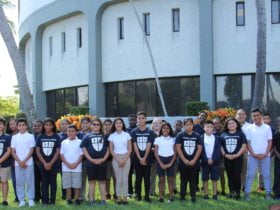As a newly tenured associate professor, I am already fielding requests to be an external reviewer for tenure-and-merchandising cases at other faculties. I have yet to accept the one’s recommendations because I’m approximately to my department chair. Admittedly, I’d like to settle into my new rank and obligations before taking on even more professional responsibilities. But reading the one’s files recently has been eye-commencing — and not excellently.
Given the hypercompetitive, tenure-tune market, I have been shocked at how many younger pupils have less-than-impressive book histories. The problem isn’t quantity but first-rate. Too many early-career scholars seem to be investing their time and power in writing loads for the wrong kinds of courses. By “incorrect,” I imply venues that gained’t result in tenure. So I thought it is probably beneficial to transport beyond the submit-or-perish mantra and provide a primer for graduate college students and new Ph. D.S. on the types of guides worth every level of an educational career.
What I’ve mentioned beneath doesn’t list every sort of booklet and isn’t meant to indict one of them. But for students who have any designs on a tenure-music job (not a clean get nowadays), let alone tenure; it’s important to recognize which invitations you have to decline. Don’t hesitate to be calculating that. Just say no if the return on your effort and time funding is insufficient, especially early in your career. If you’re unsure about the return price, evaluate the applicable tenure-and-promoting requirements, and talk with your mentors and senior colleagues.

First, the fundamentals. How do you know what’s and isn’t a “top-notch” guide? That varies by using field and institution kind. But some popular criteria follow across the board for a publication to “depend” on the direction of tenure and advertising:
It must be peer-reviewed. That’s the gold wellknown. Academic journals frequently have a double-masked assessment method, meaning neither you nor the 2 (or 3) reviewers recognize each other’s identities. Different permutations of peer review received’t remembered as a great deal: for instance. At the same time, teachers in an edited series supply comments in your chapter, or press editors provide revision suggestions. Sure, there is a detail of peer evaluation in both instances. However, that’s now not the period way in terms of excessive pleasant, rigorous publishing for your way to tenure and merchandising.
The publisher needs to have credibility, as decided through your field. You can get a deal with on that by (1) reviewing journal impact factors, (2) noting the cost inside your subject given to special types of presses (change versus standard academic as opposed to university), and (3) figuring out if it is appropriate or predicted which you as the writer pay booklet prices. For scholars within the pleasant and appearing arts, keep in mind the recognition and target market of the web hosting venue.
Order of authorship topics. At many institutions, being a major investigator or lead author (sometimes known as “first author”) is the best way a booklet counts closer to tenure. So take a look at your disciplinary, departmental, and institutional criteria. Make positive your ebook seems in a venue this is surely considered scholarly. I see an increasing number of teachers listing weblog posts, op-eds, or other opinion-orientated writings on their C.V.s. All of these matters show you to be a well-rounded individual; however — out of doors of certain fields like journalism or innovative writing — such nonscholarly publications contribute little cost to your file of scholarly productiveness.
Publishing as a graduate scholar. The ebook has to rely upon inside your area. Other scholars need to cite it, assign it in elegance, or, at the least, examine it. Most pinnacle-tier Research I universities explicitly state that a good way to receive tenure and advertise is for your work to “exchange the field.” Talk approximately a high bar. Because the educational market is so saturated, qualifications for postdoctoral fellowships and tenure-tune jobs are higher than ever, and publishing expectations have extended.
In reaction, some doctoral packages even anticipate students to post a primary-authored article on the way to graduation. Nevertheless, many packages don’t expect their students to be energetic in the subject, generating some scholarly writing. That ought to imply being 0.33 or fourth writer on a journal article. Or it would mean writing book evaluations, conference papers, encyclopedia entries, and policy or practitioner briefs. Students might be predicted to provide nearby or self-promoted performances, exhibitions, and productions for the ones within the arts.
A journal article for which you are the first author. It is suitable, but that’s now not practical for most doctoral college students. All of the opposite varieties of scholarly writing I stated (0.33 creator on an article, e-book reviews, and so on) are necessary for expert improvement, and you ought to have them listed in your CV earlier than getting into the job market.
Just preserve in thoughts: When it involves tenure and merchandising later in your career, the one’s types of second-tier scholarship, on their own, won’t reduce the mustard. Pretenure publishing. This degree — among incomes your Ph.D. And submitting your tenure document — is, arguably, while you do the most critical publishing of your educational career. What you produce in this period determines whether you earn tenure and affect the path of the rest of your profession.














